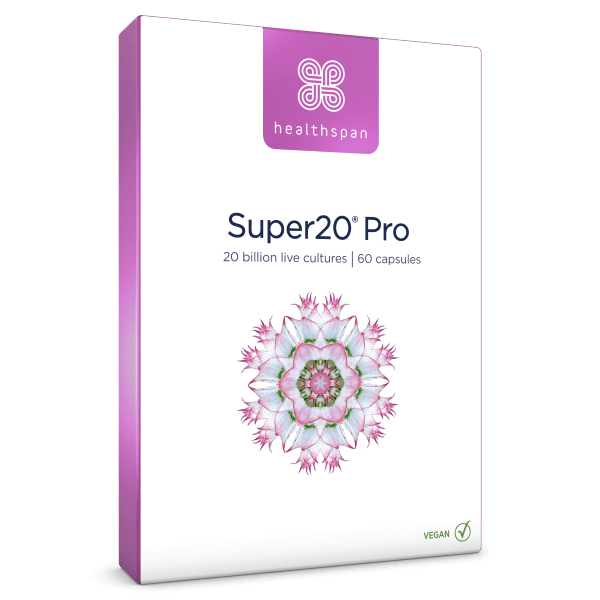Gut cleansing has been popular for hundreds of years, but is it really necessary to cleanse your colon? Find out what's really in your digestive tract and whether it would benefit from a good cleaning.
The desire to cleanse our gut has been popular for centuries. No matter where you look for health information today - be it magazine articles, blogs, or social media - you're apt to find gurus who claim that traces of your bad and unhealthy habits are present in your gut and that you need to cleanse your colon of those bad toxins and bacteria.
As awareness of the gut and its relationship to our overall health grows, the idea of 'detoxing' your gut remains popular. There's no shortage of suggested treatments, with supposed solutions ranging from restrictive diets to liquid concoctions. One increasingly popular method is the colonic cleanse, otherwise known as colonic irrigation or colonic hydrotherapy. It's even seen the rise of a multitude of colonic hydrotherapy clinics operating throughout the UK and in other countries.1
But are these gut cleanses really necessary, or are they the remnants of a centuries-old folk theory? Here, we'll take you through what's found in the gut and whether it really needs to be cleansed.
Bacteria and other microorganisms
Our digestive tract hosts a thriving community of bacteria and other microorganisms. These microbes inhabit different niches in different proportional amounts, beginning in the oral cavity and leading down to the colon.2 This means that the well known health-benefitting bacteria, like lactobacilli and bifidobacteria, aren't the only ones living there. In fact, scientists have found that roughly 35,000 different strains of bacteria can potentially find their home in a healthy digestive tract: including small amounts of pathogens such as Clostridium difficile.3
Microscopic helminthic parasitic worms are also commonly present and these have been associated with an increase in the number of beneficial bacterial strains within the intestines.4 These quantities are not a problem in the context of the gut microbial ecosystem, as they are kept in check by the other microorganisms as they all compete for resources. So detoxing in an attempt to get rid of these 'bad' bacteria might be unnecessary - the 'good' bacteria already do the work.
Endotoxins
Endotoxins are a part of the membrane of Gram-negative bacteria, which can be released into the body.5 Trace amounts of endotoxins are normal in a healthy gut.6 They have a wide variety of activities: they contribute to sepsis and inflammatory conditions, but they can also induce resistance to infectious organisms.7
Some of these endotoxins are released as a matter of course when bacterial microorganisms metabolise substrates or finish their life cycle. Again, this corrects itself when the material is flushed through the colon and out of the body. Cleansing your colon to get rid of them completely is unnecessary.
The warning signs
So how do you know whether it's time to take better care of your gut health? In most cases, you'll be clued in by gastrointestinal symptoms: acid reflux, belching, bloating, abdominal pain, or irregular bowel movements. There is still controversy among conventional medical practitioners as to the direct causes of these symptoms, but research on gut microbiota is currently making links between gastrointestinal distress and the diversity of bacteria in the gut.8
These symptoms may crop up after a course of antibiotics and though the exact reasons are as of yet undetermined, it may be because the drugs wipe out many of the beneficial bacteria that normally function as your gut protection.9
Going to extremes
Can you really cleanse your colon by upping your intake of fluid, herbs, and even organic coffee? Although highly praised in some circles, this treatment has not been shown to be a safe option, and has even been deemed not worth the risk by many medical practitioners.1 Not only is there little scientific evidence that the procedure has any tangible health effect (except perhaps for chronic constipation), but also in some cases adverse reactions occur, including uncomfortable gastrointestinal symptoms or even renal failure.
Probiotics and prebiotics
There are a number of other ways to support your gut health without needing to go to the extremes of cleansing. Probiotics and prebiotics pose one possible solution. According to international consensus, probiotics are 'live microorganisms which, when administered in adequate amounts, confer a health benefit on the host'.10 Certain strains of probiotics work for different conditions, with some being highly beneficial after antibiotic use.
Prebiotics, on the other hand, support the growth of the beneficial bacteria and result in a positive health effect. Inulin is a common prebiotic that is found in some food sources like onions, garlic, and bananas. Although these high-fibre foods are often described as 'broom foods', prebiotics do not in fact sweep the digestive tract clean, but instead slowly ferment within the digestive tract - providing food for beneficial bacteria and enabling them to flourish.11
Your healthy gut
Don't take the gut detoxing story to heart - you can be assured that all of the waste your body no longer needs is pushed through to final excretion in a self-cleaning system. All you need to do is leverage the good bacteria in your gut and stick with what scientists know will actually make a difference to your intestinal health.
If you'd like to read more about the benefits of keeping a healthy gut, as well as find more information on how you can promote good gut health, select Digestion from the Your health menu above.

Super20 Pro
Our best-selling probiotic
- 20 billion live cultures from 5 well-researched strains
- Contains Lactobacillus acidophilus, Lactobacillus paracasei, Bifidobacterium lactis and Bifidobacterium bifidum
- Supports the protective intestinal microflora in the gut






